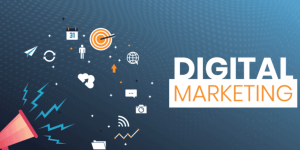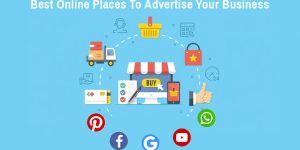
Consumer behavior has drastically changed over the last ten years. More and more people are doing business online because of how convenient it is. A lot of users are using various platforms to communicate, chat, and do business. Instagram alone has reached two billion users, making it one of the most effective platforms for reaching the target market.
A few years ago, if you wanted to advertise your products, you’d publish them on TV or print some posters; these days, business owners can easily post their advertisements on various social media platforms and their websites.
However, as a business owner, you’ll need to identify the business model to be able to create an effective strategy. Two of the most confusing business models are B2B and D2C. To better understand the difference between the two, read through this article. We’ll also give you the main strategies to help you out.
What is B2B Marketing for Business
B2B marketing focuses more on marketing strategies that are for another business or organization. Companies that sell products or services to other organizations use B2B marketing strategies.
The main goal of this strategy is to let other businesses become aware of your brand, product, and services. Once they get familiar with your brand, you’ll be able to convert them into sales.
Here are the main B2B marketing strategies to use for your business:
➢ Paid social –
This strategy focuses on placing your sponsored posts on various social media channels.
➢ Paid search –
Aside from social media, you can also place your ads on search engines (primarily Google) to showcase your products and services on the results page whenever a user searches for a relevant term or keyword.
➢ Organic search –
This is where you design a webpage that targets SEO terms. The terms used are most likely what your target market is going to search for. On the website, you can educate them and post showing your expertise in the industry.
➢ Content marketing –
Blogs, ebooks, tutorials, and other types of content can boost SEO, helping you build stronger brand awareness in your target market.
Benefits of B2B Marketing Strategies
B2B marketing strategies have their benefits; however, you have to keep in mind that you need to future-proof your digital marketing strategy to ensure its effectiveness. Here are the advantages of B2B marketing strategies:
➢ Increase exposure –
B2B marketing boosts brand awareness; thus, building more trust among your clients. Creating a webpage where they can get assistance from customer support will increase your business’s reliability. How you engage with users on social media also affects your exposure, making it a great way to let your target market know your brand more.
➢ Attracts new businesses –
Customers who are not aware of your brand will understand what products and services you offer. When this happens, they’d most likely try them, and see what your company can offer theirs. When they like the product, they’d stick to it and even recommend it to their friends and other businesses, increasing your conversion rate and boosting ROI.
➢ Product improvement –
B2B marketing strategies offer more interaction between your business and the consumers. They’d be able to give suggestions on how your business can improve, especially when it comes to the products and services you offer.
➢ Identify new opportunities –
As your organization solves your customers’ problems and identifies their needs, it creates an opportunity for your business. Perhaps you can create a new product that’ll meet other businesses’ challenges and provide them with solutions through your products and services.
What is D2C Marketing for Business
D2C marketing is a strategy that manufactures and sells products and services directly to consumers. In this strategy, there is no need to use wholesalers or retailers, and it has been used by many businesses for decades.
To put it simply, the entire sales process is more straightforward and personalized. However, nowadays, instead of going to physical stores, consumers purchase goods and services on websites and even on social media.
What strategies can you use with D2C marketing? Here are the main ones:
➢ Create a chatbot –
Building a strong relationship between your brand and your customer is critical. Consumers want excellent service; this includes the answers to their inquiries. Creating a chatbot will provide them with the convenience they are looking for, creating a good relationship with your brand.
➢ Use customer reviews and testimonials –
When your customers leave you reviews or testimonials, read through them, and you’ll be surprised by how your brand changes their lives. These things can be seen in various places, from your website to social media pages and even landing pages. Once you’ve read them, you’ll be able to identify which areas you can improve more.
➢ Find where users are looking for you –
SEO and PPC ads are two of the best ways to ensure your brand is in front of your target customers. Start by using the right keywords to keep your brand visible to them, especially when they search using relevant keywords.
➢ Utilize ad placement activity –
Research the keywords using various tools, and analyze how your competitors use them. Incorporate your keywords into headlines, tags, page titles, descriptions of your products and services, and more.
RELATED: Comprehensive Strategy Guide To Always-On Marketing
Benefits of D2C Marketing Strategies
Similar to B2B marketing, D2C also has its benefits. Keep in mind that you should always come up with additional ways to attract customers to your business to ensure that your D2C marketing strategies work efficiently.
Here are the top advantages of using D2C marketing:
➢ Affordably priced market entry –
Nowadays, it’s easy to create an online shop using third-party platforms. Create your store on Shopify or other platforms that allow businesses to sell their products and services.
➢ Going directly to customer data –
Businesses can create a more personalized experience as business owners check their target consumers’ social media pages, location, and even their search history.
➢ A stronger customer relationship –
Since there’s a personalized experience, trust in the company is stronger, giving your business a higher satisfaction rating.
➢ Full control over brand visibility –
As a business owner, you’ll have more control over your brand’s messaging, image, customer support, and how the audience sees your brand, including the products and services.
Sum Up
There’s not much of a difference between B2B and D2C marketing; they are inseparable. D2C is an extension of B2B; any business that focuses on B2B marketing can shift to D2C marketing simply by adding a channel where consumers can reach them directly.






